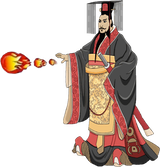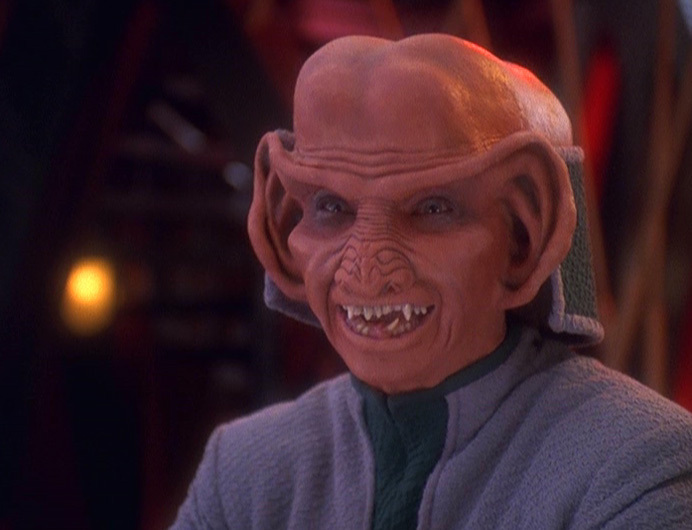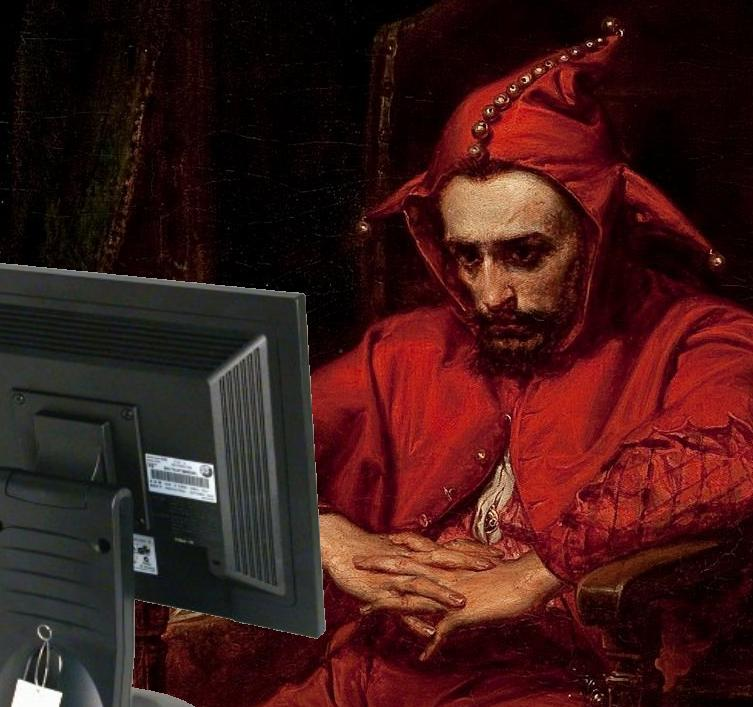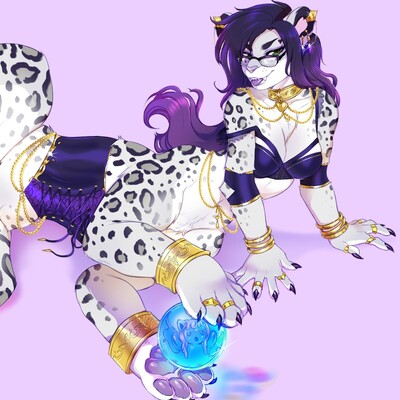Oh wow, rare Taiwan W
Is it? Chiang Kai-shek cemented his place in Chinese history for fighting alongside Sun Yat-sen against the military junta instituted after the fall of Qing. Chiang Kai-shek and Mao Zedong then led China through the Japanese invasion.
His place in Chinese history is undoubtable. You shouldn’t need to be perfect to be remembered.
I don’t think you should be perfect to be remembered, I think you should at a bare minimum not also be known as “The Butcher of Shanghai” to contemporary historians.
He put down an anti-government uprising by slaughtering 18,000 people. “Not perfect” is an understatement.
They didn’t call his military dictatorship in Taiwan “The White Terror” because Chiang Kai-Shek was an imperfect guy
Same argument could be applied to the people like Robert E. Lee who cemented their place in history. It’s just that they happen to be on the wrong side of history just as Chiang Kai-shek is.
deleted by creator
Yes, it is indeed a W.
Having a place in history doesn’t automatically mean they should be honoured. There’s plenty of people from history that we can all agree have made a huge impact and yet we wouldn’t want statues of them.
unironically hero worshipping literal nationalists
deleted by creator
Local Taiwanese here, the CKS statues don’t mean shit to us. Just the old KMT people who still think we can still overtake the mainland.
We are also not moving closer to independence. We are already independent. We have our own currency, our own democratic government who we once again voted to remain independent.
We do not need China’s support for anything, if anything they need our support with our advanced medical technology and advanced chips.
I’ve found the term “independence” to be ambiguous when discussing Taiwan. Everyone knows Taiwan is effectively an independent state. But in practice, it is less clear where the government or people of Taiwan stand on the topic. For example, Taiwan has agreed to participate in the Olympics under an ambiguous name, Chinese Taipei. Which is purposively designed to appease notions of independence from China.
For me, it would encompass the idea of a formal declaration of the Taiwan state. Perhaps even renaming the country from RoC to Taiwan to further solidify that notion, which I think does not have popular support in Taiwan. In fact, the PRC has clearly stated that military action would occur if Taiwan “declared independence”. So, instead of “declaring independence”, I hear that Taiwan instead says “well, we don’t have to declare independence, because we already are. So, we aren’t going to declare it.” Which to me sounds like: “We would officially and unambiguously declare independence, but we are afraid of what the PRC would do if we did. So, instead we are going to act like we don’t have to do it because we already are independent… even though we won’t declare it”. I don’t know… I’m probably just confused.
The Olympics is just China’s way of swinging their power around and forcing the association to call us that. We rather participate than not.
As for formal declaration, why go through the trouble? Even China immigration thinks we are a different country. You know, Taiwanese are required to get a Visa to visit the mainland? Why if they think we are part of China?
We have basically been independent for 75 years now. It’s like a couple that have been together for years and bought a house together. Why have a wedding anymore. Too much hassle.
Hong kong and Macau both requre Visa’s to enter and vise versa, its part of the one china 2 systems moddle that they have extended to Tiwan.
They just use their Mainland Travel Permit. Completely different from what we need to do to go into China.
Removed by mod
A little googling seems to show that China is Taiwan’s largest trading partner, and Taiwan is China’s fourth largest. China is no slouch in medical technology: it is filing twice as many patents as Taiwan. And it is quickly catching up in advanced semiconductors, much to the surprise of the US and its efforts to hamstring it. The Economist: China is quietly reducing its reliance on foreign chip technology
-
Trade Relationships: While it’s true that China is Taiwan’s largest trading partner and Taiwan is a significant partner for China, this relationship doesn’t necessarily imply dependency or vulnerability for Taiwan. Taiwan specializes in high-value components like semiconductors, which are crucial for various global industries, thereby diversifying its economic engagements beyond China. Taiwan’s strategic economic engagements with other major economies, including the U.S., Japan, and members of the EU, reduce its economic reliance on China.
-
Medical Technology and Patent Filings: China filing twice as many patents as Taiwan may indicate volume but doesn’t inherently speak to the quality or global impact of these innovations. Taiwan has a well-established reputation in precision healthcare technologies and medical devices, often leading in specialized sectors that are competitive on a global scale. Moreover, the raw number of patents doesn’t directly translate to technological leadership.
-
Advancements in Semiconductors: Although China is making significant strides in semiconductor technology, Taiwan’s leadership in this area is built on decades of development and deep integration into global supply chains. The technological gap, especially in advanced semiconductor manufacturing (like 5nm and 3nm technologies), is substantial and not easily bridged. U.S. efforts to limit China’s access to cutting-edge technology further compound these challenges for China. Taiwan’s Semiconductor Manufacturing Company (TSMC) remains the world’s most advanced chipmaker, underscoring its strategic value.
-
China’s Self-Reliance in Chip Technology: While China is working towards self-reliance in semiconductor technology, this is a long-term goal that faces multiple challenges, including sanctions and technological complexities. The Economist article points to a gradual reduction in reliance, but it does not imply that China has achieved parity with global leaders or can do without imports in the near term. The quality and performance of semiconductors are critical, and current global leaders like Taiwan and South Korea hold significant competitive advantages.
-
unlimited genocide on the memory of the white butcher of shanghai and taipei



Meanwhile Bandera statues ain’t going anywhere in Ukraine, nor in the US for that matter, nor in Canada: Canada Has a Nazi Monument Problem
The crackers howl and mald every single time someone even so much as floats the idea of taking down the statues of slave-owning confederates; so of course nothing’s happening to the Bandera statues here.
One step closer to integration
Wouldn’t it be the opposite, as article mentions ( erase his legacy and the historical link with mainland China.)?
It’s complicated. Chiang Kai-shek was a historical adversary of the CPC and is viewed as a traitor and war criminal in the PRC. However, his nationalist party, the KMT, is alive and well in Taiwan. The CPC currently favors the KMT even though they were former adversaries because the KMT advocates for deepening economic ties to the PRC.
With this context I’m guessing the KMT’s primary opposition, the DPP, wants to highlight the KMT’s fascist legacy while also conflating the KMT’s and the CPC’s expression of Chinese nationalism. Making that false equivalency is easier because of the KMT’s interest in building stronger economic ties with the mainland.
Western media usually frames issues from the DPP’s perspective which would explain the commentary in the article.
also a deeply unpopular politician on the mainland so it’s also a show of good faith

Removing his statues could be seen as white-washing the KMT’s history, but I doubt anyone in the PRC is actually mad about it like the article claims.
deleted by creator
About damn time
Oh good, because he was a fascist dictato-- oh because they think the CPP loves him? ok lmao
I’m confused as to why this is unfriendly to mainland China. I suppose it may have something to do with China’s intense respect for history, but I’d love to hear someone more familiar weigh in on the subject.
I’ve heard, so take with a grain of salt, that China likes Chiang’s ideology that China should be reunified.
The disagreement was who should be in power after.
The removal of the statues somehow indicates they don’t want reunion.That makes some sense, thanks.
Well no China has a strong attachment to positive history, the negative shit not so much.
Source: trust me bro
Removed by mod
From what I’ve heard, China tends to embrace the mistakes of the past and uses that as guidance for present decisions.
I’m not here to like boot lick for them or anything, but like, be accurate.
Removed by mod
The Chinese government denies none of it—aside from Western disinformation about it—nor is it kept secret from the Chinese people.
- The Myth of Tiananmen
- The Tian’anmen Square ‘Massacre’: The West’s Most Persuasive, Most Pervasive Lie.
- 1989 Tian’anmen Square riots
- A Note on the Tiananmen Protests
- Images from Tiananmen 1989 the West never shows (NSFW / CW: violence and death)
- Tank Man video footage. Tiananmen Square, Beijing, 1989
Thank you for clearing up the truth! Fighting propaganda is important praxis.
Daring today, aren’t we? Next you’ll start calling Xi Jinping Pooh Bear or something
I mean my first several posts were removed for rule 1 no specifics
Went to his tomb while there. Was pretty nice tbh.
Removed by mod
deleted by creator
That’s the rub and tug password Ari Gold uses.
Isn’t Kai Shek one of the most important founders of Taiwan? Sure, he had his issues (for example, ordering the deaths of a couple folks now and again), but you cannot have modern Taiwan without him. Just like how Mao is an integral part of the shape the modern PRC took.
https://en.wikipedia.org/wiki/February_28_incident
The February 28 incident (also called the February 28 massacre, the 228 incident, or the 228 massacre) was an anti-government uprising in Taiwan in 1947 that was violently suppressed by the Kuomintang–led nationalist government of the Republic of China (ROC). Directed by provincial governor Chen Yi and president Chiang Kai-shek, thousands of civilians were killed beginning on February 28. The incident is considered to be one of the most important events in Taiwan’s modern history and was a critical impetus for the Taiwan independence movement.
Between 18,000 and 28,000 deaths…
Just a couple people here and there!! No big deal!!
And just to be clear, the White Terror does NOT include the February 28th massacre.
Bad take. You couldn’t have pretty much any modern country without their previous problematic leader. You can learn just about them in history class and not honour them though statues.
I think 20 to 30 thousand deaths is a bit more than a couple…
but you cannot have modern Taiwan without him
Unfortunately for all his victims, you are correct. I would more blame USA who protected them in 1949+ though.
I sense a pattern here…

















